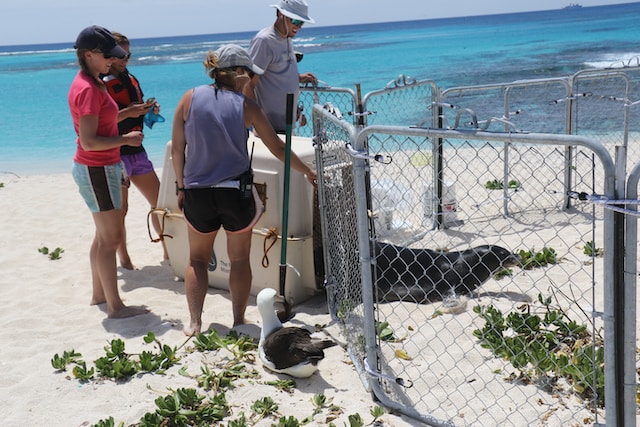Belize’s marine and coastal resources are critical to its economy and people. You can donate to the Society’s work to strike a balance between people and nature. Selva Maya forest is essential to biodiversity and climate change mitigation, providing economic benefits to local communities in terms of clean water supplies and living carbon reserves.
Donating to Belizean Conservation Efforts
Belize is a naturalist’s dream destination, home to the second-largest barrier reef and numerous rare and endangered species. However, climate change impacts could severely alter this idyllic paradise and threaten both biodiversity and local livelihoods.
Government and non-profit organizations in Belize are taking measures to preserve its natural resources, creating national parks, wildlife sanctuaries, and marine reserves in order to preserve rainforests, coral reefs, and jungle rivers.
As tourism and development expand in Belize, conservation efforts become ever more crucial. Belize’s biodiversity plays a crucial role in maintaining ecosystem processes and donating to local communities’ livelihoods; without proper protection efforts, these resources could vanish altogether.
Although Belize has passed several environmental protection laws, the country still needs help from donors to strengthen its conservation programs. Mass Audubon is one such donor organization that has assisted with various projects since 1984 to increase stewardship of national parks and natural areas as well as collaborate with local partners on emerging environmental concerns in Belize.
Recently, they also helped ensure the permanent conservation of 236,000 acres of rainforest – the largest forest preserve outside of Amazon – adjacent to Rio Bravo Conservation Management Area and providing an irreplaceable linchpin in protecting one of Central America’s most vital wildlife corridors.
Belize stands out as an impressive conservation nation in Central America with over one-third of its land designated as protected areas, making it one of the most successful conservation nations. Yet Belize still needs to strengthen protections for coastal ecosystems — which play an essential role in mitigating climate risk impacts, absorbing carbon emissions, and providing resilience against future storms.
Individuals can donate these efforts by volunteering their services to wildlife conservation in Belize. Volunteering allows volunteers to gain hands-on experience in marine and wildlife research while contributing to clearing away invasive plants from Belize’s natural environments, improving lives through education and community involvement, and contributing to improved lives for local residents.
Protecting Marine Life
There are various ways you can contribute to protecting marine life and ensuring a brighter future for ocean animals. Donating to organizations dedicated to ocean conservation is one of the most effective solutions, you can also make a difference by purchasing products that harm the ocean such as plastics or pollution-causing clothing – by shopping thrift stores, yard sales or online resale websites you can minimize the negative impacts of your purchases and help to preserve our precious ocean environment.
Another way to safeguard marine life is through donating to the creation of more marine protected areas (MPAs). MPAs are areas off-limits to humans in order to protect wildlife, habitats, and ecosystems – this means activities like fishing, coastal development, and pollution that harm marine environments are prohibited within their boundaries. Furthermore, governments can help by passing laws or policies designed to safeguard these resources.
About 5,000 ocean areas worldwide have been designated marine protected areas; however, only 10 percent are currently covered, and this figure must significantly increase if marine life is to survive.
Marine conservation efforts require collaboration from governments, organizations, companies and citizens worldwide. Conservation initiatives must address multiple factors including marine pollution, overfishing, climate change, and unsustainable practices. Governments play a vital role in safeguarding marine life through laws and policies they develop as well as monitoring/enforcement efforts, educational campaigns, and awareness campaigns.
Government agencies that oversee marine conservation may vary depending on your country of residence; examples can include the National Oceanic and Atmospheric Administration in the US, the Australian Institute of Marine Science in Australia, or the Marine Conservation Society in Britain. Each is charged with working toward conservation goals such as managing fisheries, restoring coral reefs, or increasing biodiversity.
Individuals can help the environment by joining marine conservation organizations, volunteering their services or donating to the creation of more marine protected areas. Individuals can also take simple steps such as avoiding plastics, cutting water consumption, and picking up litter when visiting beaches.
Protecting Rainforests
The rainforests are home to numerous animals, plants, and insects and serve as an essential natural resource. They provide clean water and air as well as food and shelter – contributing significantly to world biodiversity. Unfortunately, they’re at risk due to human development and deforestation – while many individuals recognize the significance of conserving rainforests, it is ultimately up to individuals and organizations themselves to take actions necessary for protecting our environment.
One way of helping protect rainforests is to donate to organizations and companies dedicated to their preservation. Such groups can work to encourage sustainable farming practices, invest in reforestation efforts, promote renewable energy sources, and educate people on why rainforests must be saved from destruction.
An additional way of donating to rainforest conservation is through organizing a fundraiser. This may take the form of a benefit concert, art show, poetry slam, or bake sale – with proceeds donated directly to an environmental charity such as rainforest conservation organizations.
There are many programs offering people an opportunity to “buy an acre of rainforest.” Unfortunately, however, these “buy-an-acre” programs often neglect indigenous communities who live within rainforests as guardians of the land they steward. RAN’s Protect-an-Acre program was developed specifically to address this issue by giving grants directly to frontline communities and Indigenous-led groups fighting forest degradation.
Rainforests provide homes to countless species of wildlife and plants, while they also play an essential role in mitigating climate change. Researchers have identified ecological tipping points which must be avoided, with rainforests serving as one of Earth’s primary carbon sinks. Conserving rainforests should be of top priority. Forests contain essential biological information that would otherwise be lost to science; thus it’s up to all of us to do whatever possible to safeguard these incredible environments. Remind your elected officials that preserving rainforests and upholding Indigenous rights are integral parts of climate change solutions, as well as advocating for low-carbon agendas that include safeguards that respect Indigenous land rights. Call, email or attend their public meetings and remind them about this fact.
Supporting Endangered Species
Wildlife species are in grave peril of extinction, endangering ecosystems and cultures alike. The Endangered Species Act (ESA) serves as an invaluable stopgap measure to save these endangered animals; however, in order to maximize its effectiveness individuals and organizations alike should celebrate and take action on May’s third Friday as well as throughout May in support of ESA efforts – find out how here!




